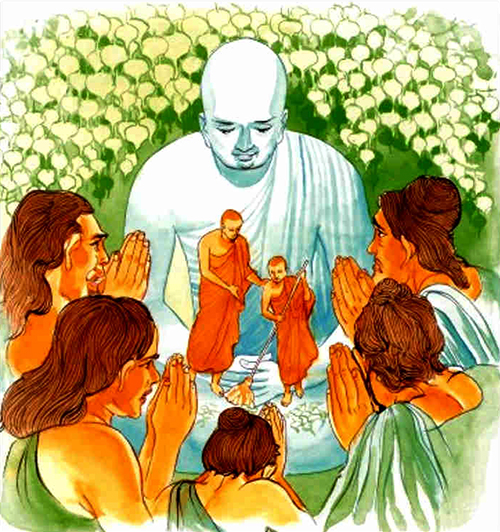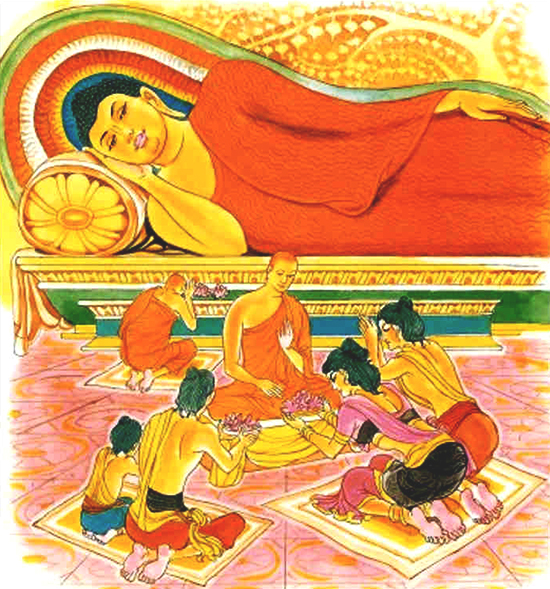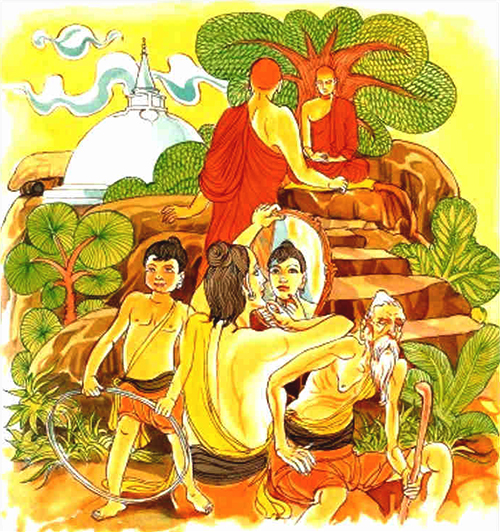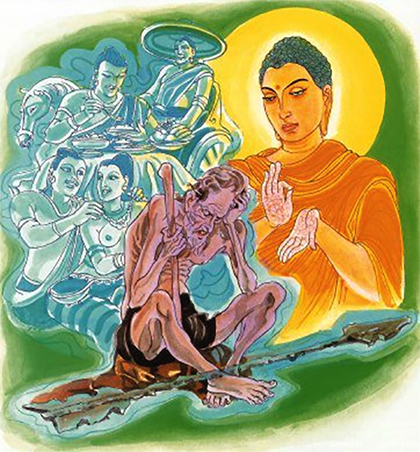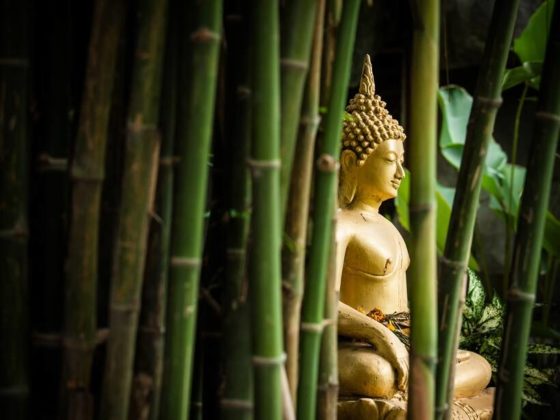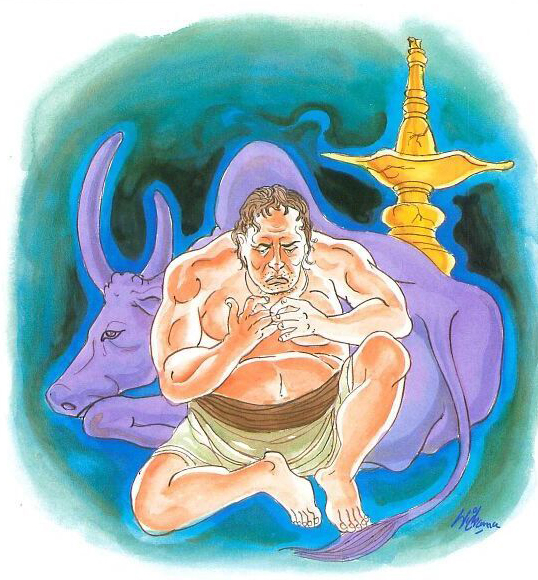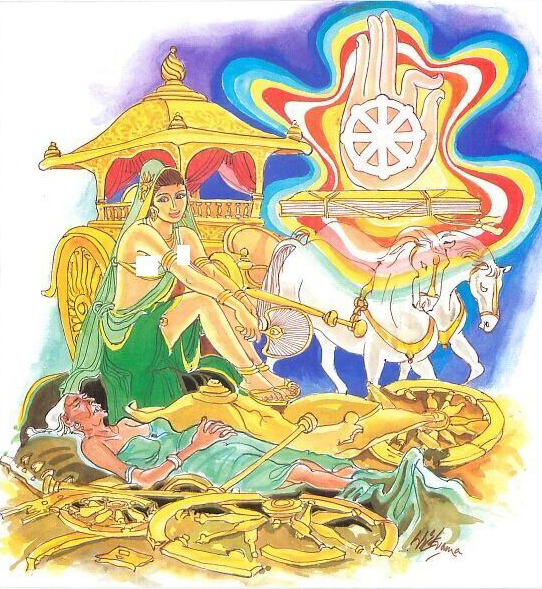The Story of Thera Padhanikatissa
Verse 159: One should act as one teaches others; only with oneself thoroughly tamed should one tame others. To tame oneself is, indeed, difficult.
The Story of Thera Padhanikatissa
While residing at the Jetavana monastery, the Buddha uttered Verse (159) of this book, with reference to Thera Padhanikatissa.
Thera Padhanikatissa, after taking a subject of meditation from the Buddha, left for the forest with five hundred other bhikkhus. There, he told the bhikkhus to be ever mindful and diligent in their meditation practice. After thus exhorting others he himself would lie down and go to sleep. The young bhikkhus did as they were told. They practised meditation during the first watch of the night and when they were about to go to bed, Padhanikatissa would get up and tell them to go back to their practice. When they returned after meditation practice during the second and third watches also he would say the same thing to them.
As he was always acting in this way, the young bhikkhus never had peace of mind, and so they could not concentrate on meditation practice or even on recitation of the texts. One day, they decided to investigate if their teacher was truly zealous and vigilant as he posed himself to be. When they found out that their teacher Padhanikatissa only exhorted others but was himself sleeping most of the time, they remarked, “We are ruined, our teacher knows only how to scold us, but he himself is just wasting time, doing nothing.” By this time, as the bhikkhus were not getting enough rest, they were tired and worn out. As a result, none of the bhikkhu made any progress in their meditation practice.
At the end of the vassa, they returned to the Jetavana monastery and reported the matter to the Buddha. To them the Buddha said, “Bhikkhus! One who wants to teach others should first teach himself and conduct himself properly.” Continue reading


